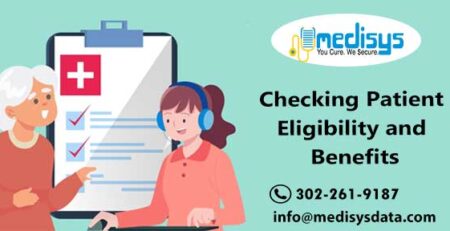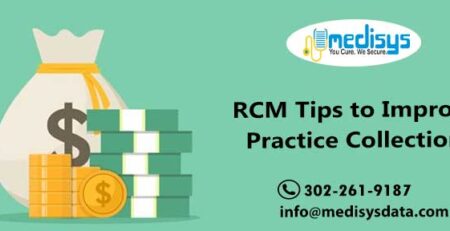Medical billing is a tough task. It requires specialty-wise billing & coding expertise and also consumes a lot of time. Even though you have a team of expert billers and coders, it doesn’t ensure you are getting accurate reimbursements from insurance carriers and patients. Tracking key performance indicators will help you to understand what mistakes you are making and areas for improvement. In this article, we discussed 7 such important key performance indicators which will help to track the financial performance of your practice.
AR older than 30 days
As the name suggests Accounts Receivable (A/R) days measure how long it takes for a service to be paid by the payer or patient. This parameter indicates the efficiency and effectiveness of your billing team and their ability to collect accurate reimbursements in a timely manner. When you submit a claim ideally you should get paid within 30 days, provided you are submitting claims electronically. Any claim which is not paid for more than 30 days needs attention. Unpaid claims after 30 days are either denied or payment status pending from payers. Most practices consider ‘AR above 60 days’ as a key performance indicator but we suggest starting working on unpaid claims right after 30 days of submitting them. With claims submitted and providers paying electronically, 30 days is a good time span for any claim to get paid.
Net Collection Percentage
This indicator shows your ability to collect accurate reimbursements from payers as well as patients. For Net Collection Percentage (NCR) use formula, NCR = (Total collections/ (charges- contractual adjustments) *100%. Practices calculate their NCR to see how much revenue is lost due to factors such as uncollectible debt, or other non-contractual adjustments. If your NCR is lower than 90-100 percent after write-offs, you should consider an internal audit of billing practices.
POS Collection
Point of Service (POS) collection represents how effectively you are collecting patient responsibility. This parameter is becoming more important as more and more patients are choosing high deductibles health plans (HDHP). Your front desk team should know the exact patient responsibility at the time of patient visits. They should know co-payment; deductibles amounts and must have an insurance coverage report handy along with them. To increase POS collections, you must share estimates with patients prior to their visit along with insurance coverage and patient responsibility. A well-informed patient at the time of visit is more likely to make payment at the time of visit. It’s an important parameter because a huge cost is involved in the recovery of that payments if these are not collected at the time of visit. You can use a simple formula, (amount collected at POS/ total patient responsibility) *100%.
Clean Claim Rate
A clean claim rate is one of the basic parameters which directly measure the ability of your billing team. When you submit a claim, you have to enter a lot of details like patient information, insurance information, diagnosis codes, procedure codes, modifiers, rendering provider information, billing information, and others. Any wrong or outdated information will result in claim rejection. Claim rejection means the payer has not even started to process your claim due to wrong information. You need to correct the information for payers to process it. As per industry standards, the clean claim rate must be more than 95 percent. If you are not achieving more than 90 percent of the claim rate then you must work on the billing process to improve them on priority. To get clean claim rate use the formula ((total submitted claims – rejected claim)/ total submitted claims)) *100, for a specific time (i.e., a month).
Cost to Collect
As mentioned in the POS collections parameter, if you fail to collect any amount at the time of visit, the cost associated to collect the pending amount increases every day. To collect pending patient responsibility, you need to send them invoices, reminders, emails, call patients. All these activities take a lot of time for your team resulting in a huge cost. The same thing applies to collecting pending insurance payments; you need to track every single claim, need rework and resubmit denied/rejected claims, talk to an insurance rep for any resolution. All these activities cost huge as an additional team member might require to handle these responsibilities.
Denied Claim Rate
Claim denials are direct indicators of the efficiency of your medical billing team. Denied claim more than 20 percent is a sign of wrong billing practices or inefficient biller or coder. As discussed above, there is a huge amount of cost associated with recovering denied payments. For efficient billing operations, you need to track every single submitted claim and mark claims as paid, partially paid, denied, rejected, and under process. To calculate your denied claim rate, divide the number of claims denied by the total number submitted.
Bad Debts
You can measure the effectiveness of collection efforts through the Bad Debt value. It will help you to understand the exact amount you have written off due to the inability to collect reimbursements. You can simply divide the total collected amount by the total allowable charges for the specific time period. You can review bad debts quarterly, and can adjust your collection efforts accordingly.
Even though your prime focus is inpatient care, tracking key performance indicators ensure financial stability for practice. If you are tracking these parameters regularly and correcting billing activities, you will realize a steady flow of reimbursements without much input from the billing team on daily basis. If you don’t have a billing team or if you are doing billing all by yourself, then we can assist you in billing and tracking all these KPIs for your practice. Medisys Data Solutions is a leading medical billing company providing specialty-wise billing and coding services. Apart from complete billing and coding services, we also share customized billing reports to measure all these KPIs for your practice. To know more about our billing and coding services, contact us at info@medisysdata.com/ 302-261-9187











